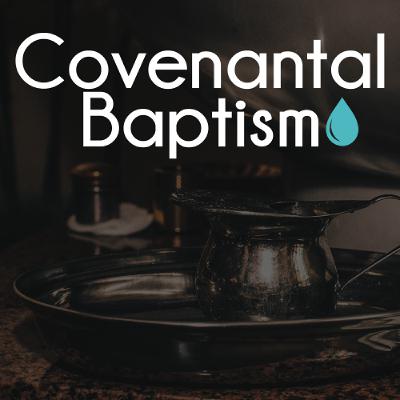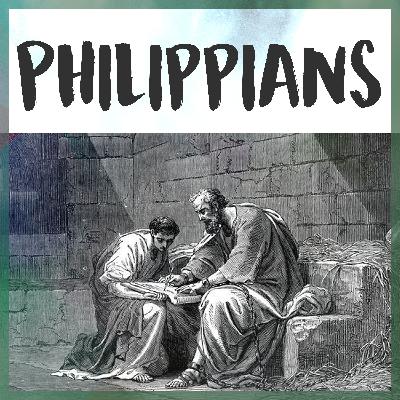Discover Tri-State Community Church - Sermons
Tri-State Community Church - Sermons

Tri-State Community Church - Sermons
Author: Tri-State Community Church
Subscribed: 2Played: 30Subscribe
Share
© All rights reserved
Description
For centuries, Christians have traveled to foreign soil to plant churches. Tri-State Community Church is an effort to plant a church right here in the Tri-State area. In a sense we are stateside missionaries with a heart to take the Good news of Jesus Christ to the Tri-State area. Tri-State Community Church operates under the oversight of the Associate Reformed Presbyterian Church (ARP).
At Tri-State Community Church we are centered on God through our Lord and Savior Jesus Christ. Through the person of Jesus Christ, God has fulfilled His ancient promise to dwell among His people, be their God, and gather His family. Jesus does what religion fails to do—change the hearts of His followers. Jesus continues to gather His family by advocating His gospel through His church.
Our purpose is to gather a family who loves and serves God through Jesus Christ and leads others in kind.
At Tri-State Community Church we are centered on God through our Lord and Savior Jesus Christ. Through the person of Jesus Christ, God has fulfilled His ancient promise to dwell among His people, be their God, and gather His family. Jesus does what religion fails to do—change the hearts of His followers. Jesus continues to gather His family by advocating His gospel through His church.
Our purpose is to gather a family who loves and serves God through Jesus Christ and leads others in kind.
523 Episodes
Reverse
In this message, Pastor Rick Anderson discusses a knowledge that progressively transforms us into the likeness of Christ.
In this message Pastor Rick answers three questions about church membership: 1) Is church membership biblical? 2) What is the role and responsibility of a church member? and 3) What are the blessings of being a church member?
In this message, Pastor Rick Anderson takes us through Paul’s words under these three headings: 1) Look out for false teaching 2) Put no confidence in the flesh 3) Count all things as loss for the sake of knowing Christ. This discussion is a "first coat of paint" and is meant to be an introduction toward a deeper understanding of what it means to come to Christ, grow in Him, and be glorified in Him for all eternity.
In this message Pastor Rick Anderson takes us to Paul’s description of two individuals, Timothy and Epaphroditus, in order to get a powerful illustration of what the Christian lifestyle is supposed to look like.
In this message Pastor Rick Anderson discusses the problem of complaining and arguing. In Philippians 2:14-18 we find: 1) A command to mortify complaining and arguing 2) Motivation to overcome complaining and arguing 3) Instruction in how to overcome complaining and arguing.
This morning we return to Philippians 2:12-13 where we continue in our consideration of the previously mentioned questions and concerns. In this message we pickup with question two asking, what is it to will and to work? And questions three and four: How does God work in us to will and to work? What is meant by fear and trembling.
Pastor Rick returns to Philippians 2:12-13 where he would have us to consider Four Questions:
1 What is it to work out our salvation?
2 What is it to will and to work?
3 How does God work in us to will and to work?
4 What is meant by fear and trembling?
Paul calls us to work out our salvation in fear and trembling. But what is meant by salvation? In this message, Pastor Rick Anderson takes us through ten ways the Scriptures speak about salvation. This is followed up by how salvation can be thought of in past, present, and future tense.
It may surprise some folks, especially if you are hearing this for the first time, but the sacrament of Baptism is meant to strengthen our faith. One of the reasons we often miss this is because too often we think of baptism in terms of what we have done--repented of our sins, put our faith in Jesus. In this message, Pastor Rick Anderson explains that, baptism is really chiefly and principally about what God has done in Christ--and this is good news.
Having opened his letter in a spirit of great joy and thanksgiving, thanking the Philippians for their partnership with him in the gospel, Paul now turns to exhortation. In verses 27 to 30 Paul calls to Philippians to stand firm and strive side-by-side, afraid of nothing in their opponents for the gospel of Christ. In this message, Pastor Rick Anderson explains verses 27 to 30 with an aim at showing what this looks like for the church today and where our empowerment for this comes from.
In our passage we get a strong word on what it is to live in Christ during this earthly pilgrimage. And we get a very strong word on what it is to die in Christ. In this message, Pastor Rick Anderson briefly delves into both of these. The aim is to explain what it is to biblically live and die in Christ and offer some guidance in getting there.
Have you ever wondered what you would do if under fierce persecution you were told to renounce Christ or die. If you have walked with Christ for any length of time this is probably a question that has come up in your heart a time or two. And it is likely a question that has caused no little anxiety and fear. In this message, Pastor Rick Anderson takes us into these waters to show us where our hope, courage, and even joy is to be found—especially in severe moments like these.
In this message, Pastor Rick Anderson labors to show the power of motive—“Our motives, those hidden inward reasons for doing the things we do, can either empower us or kill us.” This message begins with an explanation of the text showing the various motives found therein illustrating how Paul’s motives empowered him to endure some very foul conditions for Christ’s glory. It concludes with how to rid our hearts free from impure motives. Glory be to Christ!
In Philippians 1:12-26 we get what some have called a missionary letter. There Paul sends word to the Philippian church he is well. But Paul also imparts a powerful lesson on the strength of living faithfully in Christ in foul conditions. In this message, Pastor Rick Anderson explains Paul's lesson.
Life is full of decisions and these decisions turn into plans. As image bearers of God we were created to think, reason, and plan. And this is something we do constantly. In this message, Pastor Rick Anderson takes us through Proverbs 16:1-9 to show us the relationship between our plans and God’s sovereignty and how we should approach our thinking, reasoning, and planning before our sovereign God.
Sociologists are telling us that Americans are afraid of more things and they are more afraid of those things than they have been in the past. And this resonates with what we see in our culture so we are not surprised by these findings. In this message, taking a large leaf out of John Flavel’s work on fear, we begin to explore how we are to navigate through our fear.
The German Reformer, Martin Luther wrote these words concerning Psalm 118: “This is my own beloved psalm. Although the entire Psalter and all of Holy Scripture are dear to me as my only comfort and source of life, I fell in love with this psalm especially. Therefore I call it my own. When emperors and kings, the wise and the learned, and even saints, could not aid me, this psalm proved a friend and helped me out of many great troubles... Would to God that all the world would claim this psalm for its own, as I do!’ In this message, Pastor Rick Anderson first breaks the psalm into digestible sections, then briefly explains each of these sections with the eye of showing how this psalm looked forward to Christ and how it applies to us today. It is our prayer that this psalm become your loving friend and aid as well!
This morning we come to Luke 19:28-48 in order to consider what the church has historically called Palm Sunday. This event is of great significance for in it, Jesus, conscientiously and deliberately fulfills the then 500 year old prophecy spoken by Zechariah. In this message, Pastor Rick Anderson takes us through both the broader context of Luke as well as the context of the Old Testament in order to show the amazing significance of Jesus' entry into Jerusalem.
In 1 John 2:15-17 John gives us this imperative: “Do not love the world or the things in the world.” This passage has been often misinterpreted and misapplied to great harm. In this message, Pastor Rick Anderson first shows John’s method in bringing us to this imperative and then shows some misinterpretations and misapplications of it. From there we look at the verse more closely defining what John means by the word “world” and the word “desires” to show how this text is deeply penetrating. The message concludes by asking and answering how to overcome loving the world.
If you have read John's first letter then you have probably been puzzled by his use of “children, fathers, and young men” in chapter two, verses twelve through fourteen. Who is John speaking to? Who are the children, fathers, and young men? And why is John repeating himself? In this message, pastor Rick Anderson takes up these questions to show that something very powerful and pastoral is going on here—something that can give the true believer great confidence in his or her salvation.













